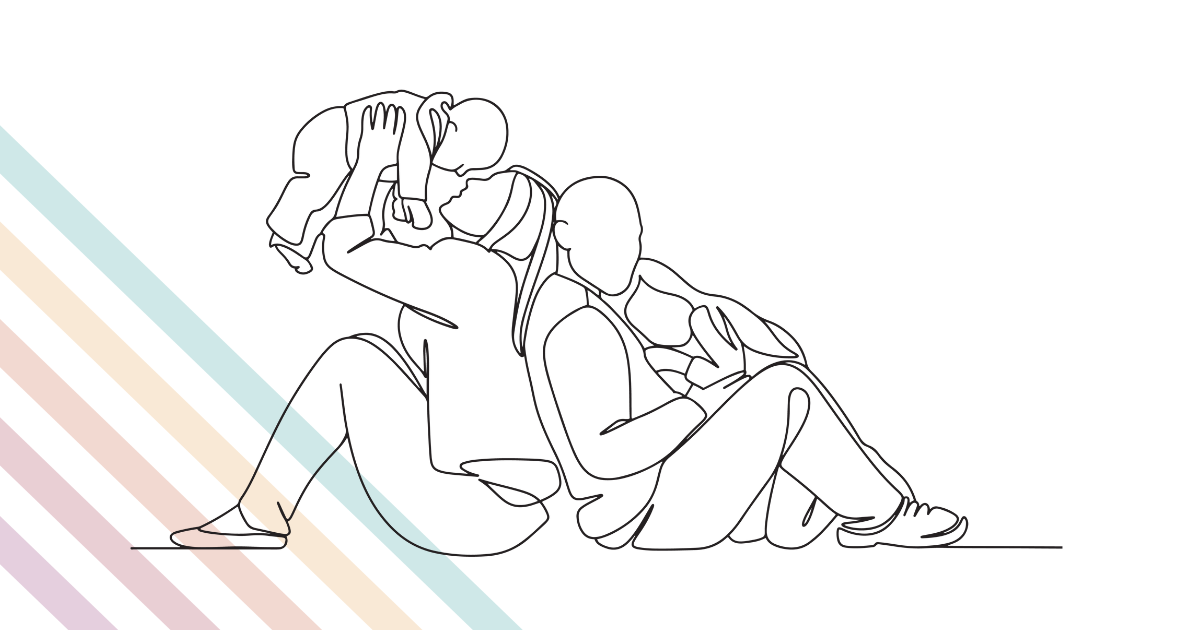Are you coming to Canada to visit, work or study? Maybe you’re already here as a visitor, student or worker and are wondering if your family members can join you in Canada. In this blog, we’ll explore ways you can bring your family members to Canada and the types of permits family members are eligible for.
Which family members can I bring to Canada?
You may be able to bring your spouse, common-law partner, conjugal partner, and/or dependent children to Canada. These eligible family members must have a relationship to you that meets the definitions described in the Immigration and Refugee Protection Regulations.
Here is a summary of the family members you may be able to bring to Canada as a temporary resident (visitor, student, or worker):

Spouse
This is someone to whom you are legally married. The marriage must be legally recognized where it took place and under Canadian law. Not all marriages are recognized under Canadian law.
Canada does not recognize the following types of marriage:
- A marriage where one or both spouses was not physically present. This includes marriages conducted by proxy, phone, or online.
- Polygamous marriages
- Marriages where a previous divorce was not legal (i.e. you were still legally married to another person when you married your current spouse)
The most common barrier to a legal marriage is a previous marriage that has not been dissolved. Marriages are dissolved through annulment and divorce, or if one of the spouses passes away. If you have a partner and are unable to marry that person due to a previous marriage, then you must meet the definition of common-law or conjugal partners in order for your family member to join you in Canada.
Common-law partner
A common-law partnership means that a couple have lived together for at least one year in a conjugal relationship. The start- date of the relationship is the date on which you began living with your partner in a conjugal relationship and is recognized as a common-law relationship the day that you can prove you’ve lived together in that relationship for 12 consecutive months.
Cohabitation means living together. Couples who are cohabiting have merged their lives into a single household where they are financially, socially, emotionally and physically interdependent, are in an exclusive relationship and have a high degree of commitment to one another.
Conjugal Relationship
A conjugal relationship is similar to a common-law relationship such that a couple have an exclusive relationship and a high degree of commitment to one another but are unable to marry or live in a conjugal relationship. For example, same-sex couples residing in a jurisdiction where this type of relationship is against the law.
Dependent Children
Your child (biological and adopted) can come to Canada with you if they are less then 22 years old and not married or in a common-law relationship. A child 22 years of age and older may be eligible to join you if they have depended substantially on you financially since before they turned 22 and are unable to be financially self-supporting due to a physical or mental condition.
When can my family members join me in Canada?
Eligible family members can apply to accompany you in Canada at the same time you apply for your visitor, work, or study permit. They can also apply to join you after you’ve entered Canada and received your visitor, work or study permit.
Your family members cannot apply before you if you’re the principal applicant.

Including family members in your initial application (before coming to Canada)
You can include your family members in your initial visitor, study, or work permit application when you apply online to MyCIC. If approved, you and each of your family members will receive a letter of introduction (LOI) and a temporary resident visa (TRV), if necessary, that you will present to an Immigration Officer when you enter Canada.
Those seeking entry to Canada as visitors are typically granted entry for a period of 6 months beginning the day they enter Canada. The only exception to this rule is if the Immigration Officer limits your stay, in which case they will either:
i) stamp your passport and write a date by which you need to leave Canada below the stamp, or
ii) issue a visitor record with an expiry date.
Study and work permits will be issued upon entry to Canada by an Immigration Officer. The validity period of your permit begins the date you enter and you must leave Canada by the expiry date printed on your permit.
Family members can travel to Canada with you, or accompany you later, but they cannot enter Canada before you.
Applying for Family Members after Receiving your Visitor, Student or Work Permit
Eligible family members can apply to join you after you’ve entered Canada by applying online or by applying on entry to Canada (at a land border crossing or the first airport they arrive at in Canada).
All family members’ permits will be valid for the same duration as your permit and cannot be issued longer than the validity period of each individual’s passport. Thus, make sure everyone’s passport is valid longer than the duration they’re eligible to stay in Canada to ensure you and your family members receive a permit valid for the proper duration.
Is my family member eligible to join me in Canada?
Family members of Workers
Your family members may join you in Canada if you have a valid work permit.
Your spouse or common-law partner and dependent children who are the age of majority in the province where you are/will live may apply for an open work permit.
Their eligibility for an open work permit depends on whether you’re working in a high-skilled or low-skilled occupation.
In all cases, your work permit must be valid for at least 6 months when your family members apply for their permits.
Eligible family members of high-skilled workers can apply for an open work permit except in the following situations:
- You’re in international student who’s working in a co-op program
- You’re an international student working off-campus without a work permit
- You’re applying for a post-graduation work permit (PGWP) but haven’t received a positive decision on your application at the time the decision on your family members’ application is made.
Eligible family members of low-skilled workers can apply for an open work permit except in the situations stated above or if your permit was issued through one of the following programs:
- Low-wage stream of the Temporary Foreign Worker Program (TFWP)
- Seasonal agricultural worker program
- Agricultural stream of the TFWP
- Agri-Food Pilot (unless you’ve received an acknowledgment of receipt letter from IRCC confirming that your application for permanent residence is complete)
Your family members can also enter Canada as visitors (i.e. if they don’t intend to work or are minor children who won’t be studying in Canada). Dependent children can also apply for study permits and are exempt from the need to provide a Letter of Acceptance from a Designated Learning Institution (DLI).
Family members of Students
IRCC is reforming the international student program and when the changes are implemented only spouses or common-law partners of students studying a graduate (master’s or doctorate) or professional degree-granting program will be able to apply for a work permit, as well as spouses and common-law partners of international students applying to extend an existing spouse open work permit.
These changes haven’t come into force yet. Your spouse may be able to apply for an open work permit before the changes are made if they meet current criteria, which you can find here.
Family members of Visitors
Your family members can accompany you to Canada if you’re visiting. They, too, can apply to visit Canada. Spouses, common-law partners and dependent children can apply for study permits with a letter of acceptance (LOA) to a designated learning institution (DLI) (they’re exempt from requiring an LOA in the scenarios stated above, unless the applications are being submitted from within Canada).
What documents do my family members need to apply to accompany me to Canada?
In general, your family members will need to include the following documents in their application for a Canadian visa to join you in Canada:
- Proof of relationship (i.e. marriage certificate, proof of common-law/conjugal relationship, birth certificate naming both parents)
- A copy of your Letter of Introduction, work permit, or study permit (as applicable)
- Proof that you are or will be working in Canada such as a job contract, paystubs, or letter from your employer (as applicable)
- Proof that you’re authorized to remain in Canada for 6 months or more
- If you have an open work permit, proof that you are employed in a high-skilled occupation
- Medical exams in certain circumstances
- Visa office specific requirements
- Proof of intent and ability to leave Canada at the end of your authorized stay
- Proof of funds
TL;DR
In many cases, your family members can come with you or join you in Canada if you’re here to work, study or visit. Your family members’ eligibility varies based on the type of permit you have and the program through which you applied for your permit.
Written on March 15, 2024 by Brooke Finlay
